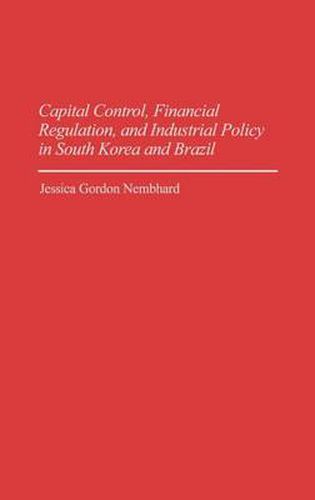Readings Newsletter
Become a Readings Member to make your shopping experience even easier.
Sign in or sign up for free!
You’re not far away from qualifying for FREE standard shipping within Australia
You’ve qualified for FREE standard shipping within Australia
The cart is loading…






This author examines the theory and practice of government interventions in the financial sector of two newly industrialising countries, Brazil and South Korea. Findings from this study help to explain the widespread use of such interventions despite the generally negative predictions (of inefficiencies and general failure) which derive from more prominent and traditional theories. This work contributes a political-economic exploration of how, when, and what kinds of financial regulations can be successful. Historical and institutional analysis of the use of capital controls, credit controls, and economic planning in Brazil and the Republic of Korea illuminate the ways in which strategic use of specific financial controls facilitate these countries’s efforts to industrialise rapidly, and solve the problems of capital creation, productivity, preservation, and disciplined management.
$9.00 standard shipping within Australia
FREE standard shipping within Australia for orders over $100.00
Express & International shipping calculated at checkout
This author examines the theory and practice of government interventions in the financial sector of two newly industrialising countries, Brazil and South Korea. Findings from this study help to explain the widespread use of such interventions despite the generally negative predictions (of inefficiencies and general failure) which derive from more prominent and traditional theories. This work contributes a political-economic exploration of how, when, and what kinds of financial regulations can be successful. Historical and institutional analysis of the use of capital controls, credit controls, and economic planning in Brazil and the Republic of Korea illuminate the ways in which strategic use of specific financial controls facilitate these countries’s efforts to industrialise rapidly, and solve the problems of capital creation, productivity, preservation, and disciplined management.